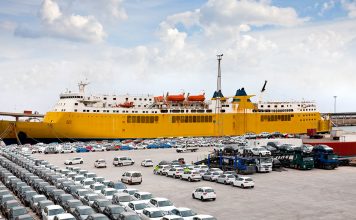Kenya Railways acting managing director Philip Ndegwa’s opinion article, “Why we are buying diesel train cars for city” (SN, March 17), does not only ring hollow but is also hopelessly unconvincing.
A reader fails to grasp the motive of the corporation, which has been on the receiving end for purchasing old, obsolete diesel-powered train cars when the world is moving to electric, less-polluting modes of transport. KR exposes itself as an institution that has been overtaken by events and is living in the past.
LOW-EMISSION
At a time when the discourse on climate change and transition to low-emission development trajectory is shaping international diplomatic, political, economic and social interactions in a manner never witnessed before, Mr Ndegwa looks completely detached from reality.
Worryingly, KR is among the many parastatals yet to embrace the inevitable shift to the future in the context of climate change, which has necessitated formulation of several policies anchored on legislation earmarked to address global warming, signed by President Uhuru Kenyatta in 2016.
This law requires citizens and government institutions to take action on climate change. Part of that effort, mitigation, is to take action that minimises the greenhouse gases produced by fossil fuel-based sources of energy like diesel. Sectors such as energy, agriculture, forestry, transport and agriculture, our economic mainstay, are adversely affected and also contribute to global warming.
As we build resilience of these sectors, we need to honour our commitment to international law, particularly the Paris Agreement, which was ratified by Parliament, that requires Kenya to reduce its emissions by 30 percent by 2030 and targets the agriculture, forestry and transport sectors.
DUMPING GROUND
Transport is an important sector in Kenya’s ambition to meet its obligation to reduce dependence on fossil energy, particularly petroleum. Progressive countries, especially in the West, are rapidly shifting to cleaner, more efficient renewable energy to power transport and other drivers of economic growth.
The climate-change-conscious Western citizens have invested heavily in renewable technology with more shifting to renewables, rendering diesel-driven locomotives obsolete.
For the past decade or so, Western countries have modernised their transport systems to include “smart” trains and cars. aced with the dilemma on where to dump the old, outdated locomotives, they either donate them to Third World countries as aid or, worse, long-term investments or loans.
This could explain why KR is purchasing 25-year-old diesel locomotives from Spain.
Just as with the standard gauge railway (SGR), for which the government purchased a diesel-powered system from China, the locomotives which KR wants to buy will not only pollute the city but also quickly fall into disuse. Why can’t KR start on a clean slate with an electric system as in Ethiopia and Tanzania?
SOURCE: nation.co.ke



![Top 20 Used Cars to Avoid Buying in Kenya – [PHOTOS]](../../../blog/wp-content/uploads/2013/11/top-used-unreliable-cars-to-avoid2-80x60.jpg)


![Top 20 Used Cars to Avoid Buying in Kenya – [PHOTOS]](../../../blog/wp-content/uploads/2013/11/top-used-unreliable-cars-to-avoid2-100x70.jpg)



